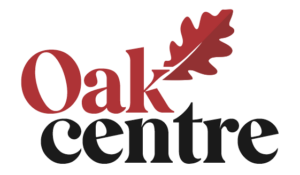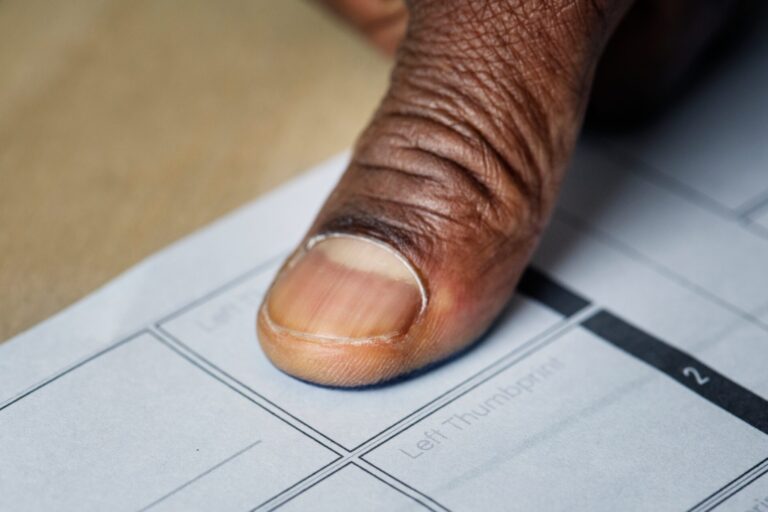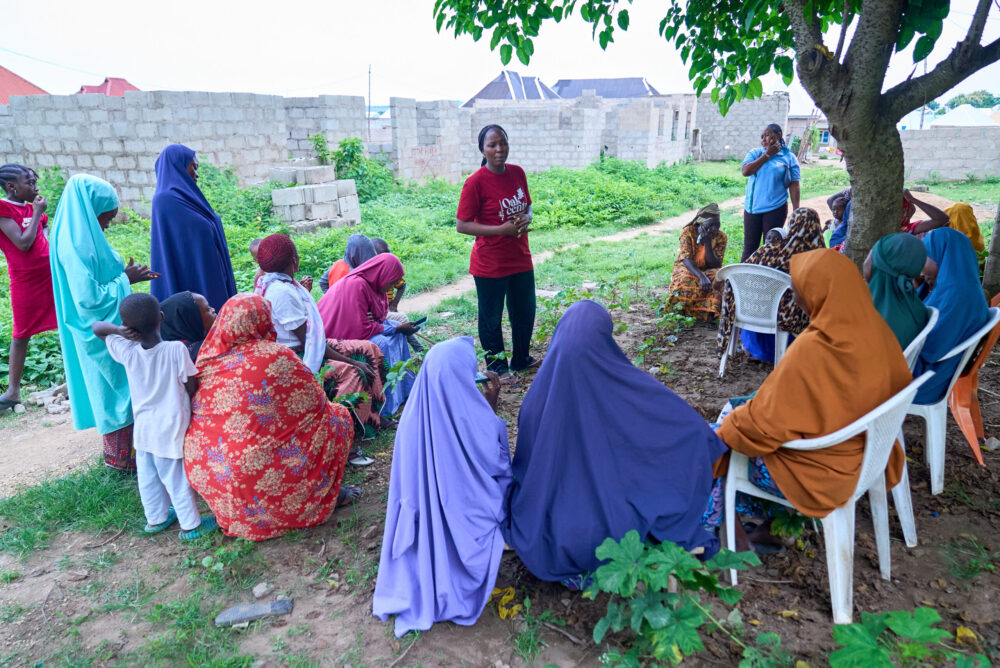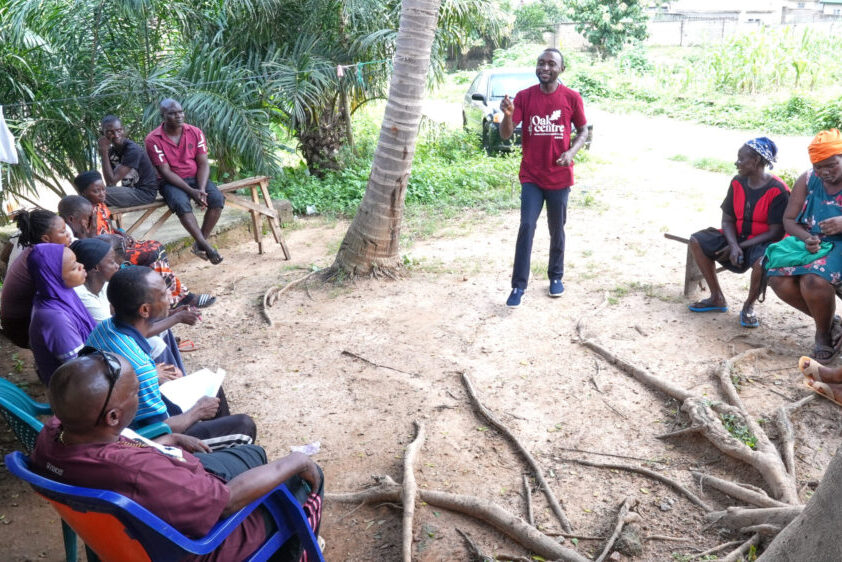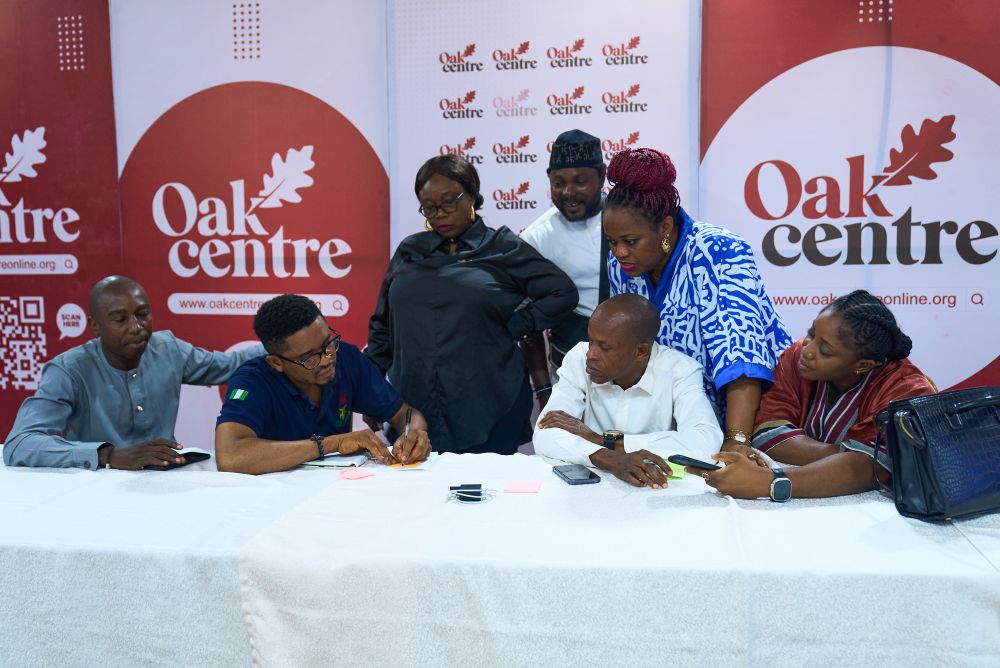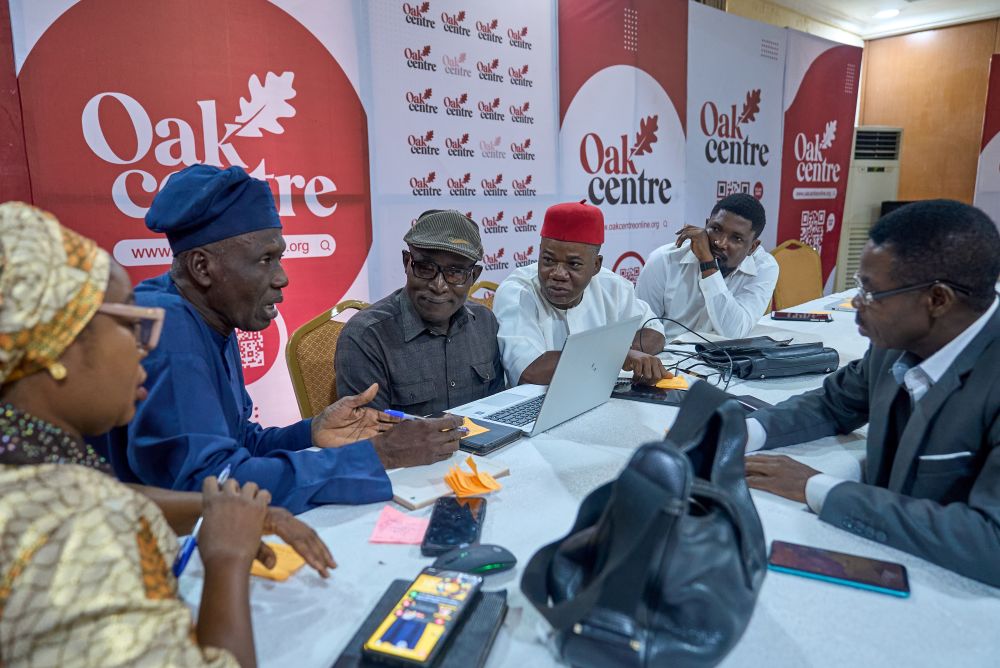Oak Centre has released a compelling report titled “The Imperative for Cleaning and Maintaining Nigeria’s Voter Register”, calling for urgent and strategic action to safeguard the integrity of the country’s electoral process.
The report, authored by Oak Centre Fellow Adeshola Komolafe, draws on domestic and international examples to outline the technical, legal and institutional gaps that continue to affect the credibility of Nigeria’s voter register, which currently holds over 93 million entries. Despite progress made by the Independent National Electoral Commission (INEC), including the adoption of biometric technology and the issuance of Permanent Voter Cards (PVCs), serious challenges such as multiple registrations, ineligible voters, and the presence of deceased persons remain.
“The integrity of the voter register is the bedrock of electoral credibility. Without a clean and accurate register, the very foundation of democratic governance is undermined,” Komolafe writes.
The report highlights the legal framework underpinning voter registration in Nigeria, as well as the practical limitations INEC faces due to logistical constraints, limited infrastructure, and weak database synchronisation. It emphasises the need for regular audits, stakeholder engagement, and the incorporation of advanced data management systems.
In analysing case studies from Ghana, South Africa and Kenya, the report draws lessons on how African nations have improved their voter registers through robust stakeholder engagement, decentralised registration processes, and biometric verification technologies.
Importantly, the paper also addresses the risks associated with digital voter management, including data privacy concerns, infrastructure gaps in rural areas, and the high cost of biometric systems. It calls for greater investment in digital infrastructure, legislative reforms to guide data governance, and public awareness campaigns to educate citizens on the importance of voter registration integrity.
“The presence of inaccuracies, underage and deceased registrants, and limited connectivity between data systems not only erode public trust, but they also open the door to electoral fraud and disenfranchisement,” Komolafe explains.
The paper concludes with a set of clear policy recommendations, including legislative reforms, institutional capacity building for INEC, and greater collaboration with civil society, aimed at improving Nigeria’s voter registration process in line with global best practices.
As Nigeria prepares for future elections, the report serves as both a timely warning and a blueprint for reform. Oak Centre has hailed the work as a critical contribution to ongoing national conversations on electoral integrity and democratic accountability.
